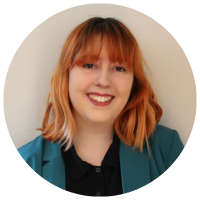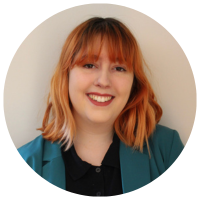Starting to think about applying for grad roles? From nervous anticipation to excitement, it’s only natural to have mixed feelings about moving onto the next stage of your professional journey.
CommBank’s Talent Acquisition Strategy Manager for Campus, Tanaya Williams, and Kiara Ramos, Talent Acquisition Delivery Manager, are both involved in CommBank’s Graduate Programs. They’ve put together a quick guide on some things you should think about when applying for grad roles, what you’ve got to look forward to, and some insider tips!
1. Be confident!
You’re finally here! Take comfort in the fact that you’ve done the hard work, and be confident in your abilities. You’ve (at the very least) got the basics down pat, so now it’s time to build on that and learn. Remember, employers don’t expect you to know everything, which is why Tanaya says you should feel at least a smidge of confidence straight off the bat.
“We’re not looking for high experience for grad roles. We’re looking for keen individuals who are eager to learn,” she says. Kiara adds that CommBank typically looks at skills and personal qualities over qualifications (bar a few programs, of course) when looking for eligible candidates.
“We really look for motivation as that important piece to get a place into our programs,” she says. But if you’re looking to get an extra leg up, do some self-learning. There’s so many ways to grow your skill set: do some extra reading, or even head to YouTube and watch some tutorials! Tanaya adds that CommBank even offers a virtual experience that allows you to use the skills you gained at university and apply it to work at the Bank. So keep in mind that experience doesn’t have to mean internships or work, it can be anything.
2. Everybody makes mistakes
As you step into the workforce after years of being in a classroom, it’s natural to worry about messing up. But the reality is, you probably will - and that’s okay! Kiara emphasises the fact that mistakes are a learning opportunity, and that everyone makes them.
“We’re not perfect, we’re all human. Especially when you’re starting off in a career that may or may not be in your field and you want to make a good impression and you know, things don’t always go right,” she says.
“I think the redeeming factors is what you learn from it and how you apply those learnings to those future instances to ensure you don’t let it happen again.” In terms of making mistakes in the interview process, Tanaya points out that nobody feels good walking out of an interview.
“Take everything as a learning experience and nine times out of ten you’ve actually done better than what you think,” Tanaya says. “I think there's not one interview where I walked away going ‘Oh, I nailed it!’... Everyone I think walks away going ‘Oh my god, I should've said this, I shouldn't have said that’...it's so natural, just a natural thing that I don't think ever goes away,” she says.
But if you do want to feel extra prepared, Tanaya says that you should look out for tips, tricks and insights that organisations might have available so you know what to expect. It’s also a good idea to research the company you’re applying to rather than just the role you’re going for!
3. Money isn’t everything
After years of being a student, it’s easy to let the salary of a job make your decision for you. While pay is extremely important, you might want to think about whether it’s the most important thing for you.
“You might be in a position where you can take on a lower paying job that will help you to build skills and expertise and connections in a way that will project you further in five years’ time, than a job that pays well immediately but you don’t get any progress or progression over the next five years,” Tanaya says. She adds that when she’s on the hunt for a new job, she always considers whether there’s room in each role for a healthy work-life balance.
“If I don’t have a good work-life balance in a job that pays more money, it’s probably not going to be the right job for me. I think I’d prefer to get paid a little bit less and have that flexibility and know that I have a well-balanced life,” she says. Thinking about things like holidays and flexibility as well as money might help you in the long run.
“You don’t want to get stuck in a role where you’ve only thought about the pay and then you’re working too hard, you don’t have holidays, or you’re working overtime because you can’t meet deadlines,” she says.
Another important thing to think about is the culture of the workplace. It can determine whether you actually enjoy yourself at work, especially considering how much time you’re going to spend there.
“You spend eight hours of the day at work… it doesn’t leave a lot of time, so you want the environment where you’re spending most of your waking hours to be a positive place,” Tanaya says.
Pay is obviously a major factor that shouldn’t be ignored, either. So do a little shopping around when you’re looking for a program to find one that best suits you and your needs.
4. Making connections
Not only are you qualified, you’re actually in demand! Chances are your colleagues and leaders will be interested in getting to know you.
“When Grads have started a program they’ve got a ‘grad card’, which essentially gives them access to senior leaders because senior leaders love grads,” Kiara says.
There’s also an opportunity that can often get lost amidst the tasks, pay and the role itself: making lifelong friends.
“I think nobody really thinks about that when they’re applying for a job, but one thing that we’ve heard that grads love is that they never expected to make so many friends, you know, so many diverse thinkers, so many leaders,” Tanaya says.
“All the connections that you make is something I think [grads] should look forward to, but it’s a surprising thing that they didn’t think about when they were applying for roles.”
As a final piece of advice, Kiara says that grads should really take their first year out of university “by the horns”.
“Honestly it’s a really great time to be a grad because of the opportunities that are available to them and the importance that a lot of organisations like CommBank place on grads,” she says.
“So make the most of it and put yourself out there! You’ve got a whole new working world to explore, and it’s waiting to welcome you in.”
Applications for CommBank’s Grad Program open on the 21st of March. Head to au.gradconnection.com/employers/commonwealth-bank to find out more.
 | About The Author Clareese is a Media and Communications (journalism) graduate from La Trobe University. She worked at GradConnection as a Student Journalist where she covered a range of topics on the student blog and reported on the 2023 Top100 Awards. She’s now working in an exciting new role as a Cadet Journalist at News Corp based in NSW. |
